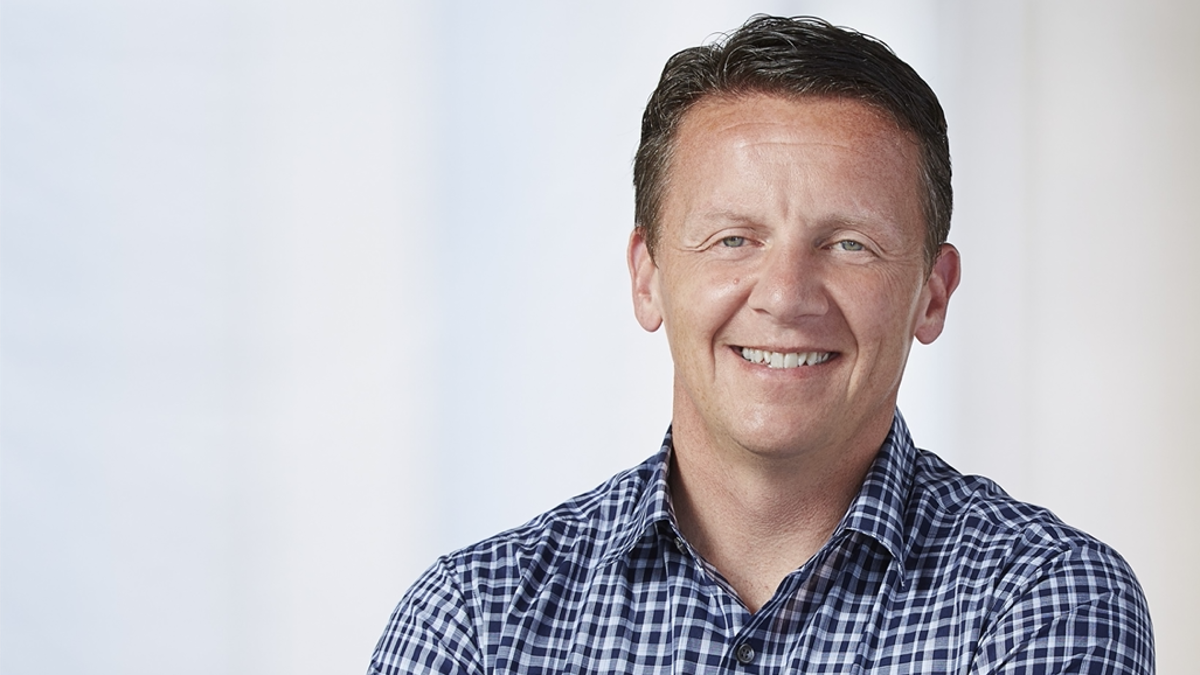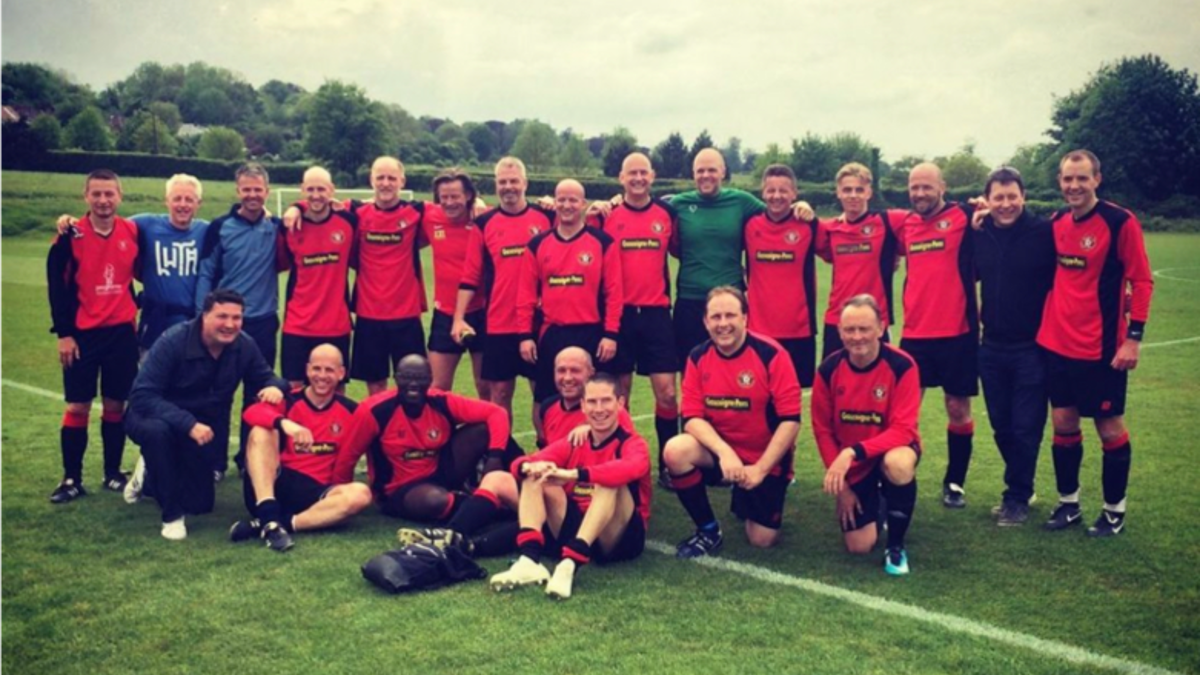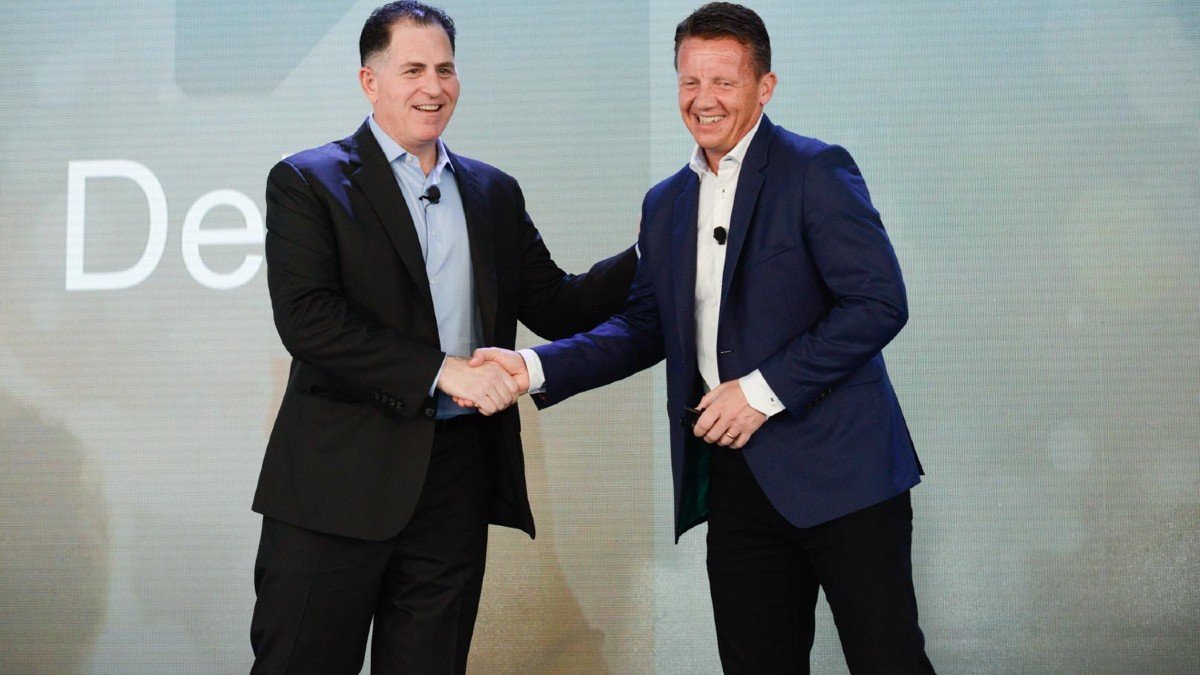From the Surrey Hills to Silicon Valley
Jeremy Burton left his native North-East to study computing at Surrey in 1986. Now a CEO in Silicon Valley, he’s worked with key industry figures such as Michael Dell and Marc Benioff…

"Coming to Surrey was a breath of fresh air," says Jeremy
Keen football fan Jeremy’s enjoyed a blinder of a career in the USA, but he hasn’t forgotten his North-East roots.
“Middlesbrough’s my home-town team,” he explains. “When we take my current company public, my dream is to buy the club.
“This isn’t based on some driving ambition to oust current owner Steve Gibson, though. He’s done a great job.
“I’ll be doing it so my best man, who was an apprentice there, can finally have his first-team debut.”
Choosing Surrey
Another association Jeremy hasn’t forgotten is the University of Surrey.
“I arrived in 1986 to study a BEng in Information Systems Engineering,” he recalls. “The North-East at that time was riddled with unemployment. Shipbuilding, steel and coal were all being shut down. My dad used to run the local Benefits Office. I knew how tough it was.
“Coming to Surrey was a breath of fresh air. It was a dynamic environment and it possessed a different mindset. Studying computing also meant I was going into a growing industry where it was unlikely I’d be made redundant.
“In addition, ICL was sponsoring students on my course. The lure of extra beer money made it a no-brainer.”
Software and scoring

Jeremy returned to Guildford and laced up his football boots to represent Team Alumni at Grad Sport 2019
Jeremy fondly remembers his degree.
“It was perfect for me,” he says. “As a kid, my parents bought me a Sinclair ZX81. I used to type in games programs from magazines when I wasn’t playing Pac-Man or Football Manager.
“I was a keen programmer before university. I realised quite early on that software rather than hardware was the future.
“My course at Surrey aligned with this view. It was much more focused on software and networking rather than traditional electrical and electronic engineering. It was great.”
But it wasn’t all work for Jeremy.
“I played for the University Football Team for three years, too,” he adds. “A trip to France to play a team in Deauville and the 1990 tour to Russia remain epic memories.”
Kicking off a career

Jeremy, seen here as a fresh-faced graduate in 1990, has had a stellar career journey
On graduation, Jeremy landed a job as a programmer at ICL.
“It was mundane work,” he recalls. “But it got more interesting when Windows came on the scene.”
A slice of luck saw him secure his next role.
He explains: “I was getting married and I needed to make more money to buy a house. I met a woman at a party who worked at Oracle, and I asked her if they had any jobs going.
“Two weeks later, a manilla envelope with a list of jobs appeared in my pigeonhole. I applied for a UK-based role and I got it. I never met the kind lady who sent me those jobs again. But that was a defining career moment.
“I started there in 1993 and I eventually worked for Marc Benioff, who’s now the CEO of Salesforce.com. He liked me and he asked me if I wanted to move to America and work for him.
“I went home to ask my wife if she wanted to live in the USA. Her reaction was, ‘We can’t. We haven’t paid off the sofa!’”
Fortunately, Jeremy managed to allay his wife’s furniture fears and, six weeks later in 1995, they moved to America.
Silicon Valley debut
Jeremy arrived on the West Coast when the entire country was gripped by the OJ Simpson trial.
“There was lots of scary stuff happening, including race riots,” he recalls. “The thing I immediately loved about the US, however, was that nobody cared if you didn’t have the ‘right’ accent or if you hadn’t attended a certain school. All they cared about was what I could do and how good I was.
“That, coupled with 300 days of sunshine every year, was so refreshing and energising. It puts everyone in a positive frame of mind. In fact, positivity thrives in Silicon Valley. People believe anything can be done. It’s infectious and it helps create success.”
Jeremy clearly caught the success bug. By 1999, he was a Senior Vice President at Oracle. He then accepted a role to become Chief Marketing Officer at Veritas, a fast-growing software company that was bought by Symantec.
Big-money move

Working alongside Michael Dell to create a new company is one of Jeremy's career highlights
Jeremy took his first Chief Executive Officer role in 2008.
“Six months later, the world went into financial meltdown,” he grimaces. “It was a private-equity backed company called Serena and we had half a billion dollars of debt. My job at that time purely involved keeping it afloat.
“I had to know where every nickel and dime was. I don’t look back on it with fond memories, but I learnt a huge amount. Difficult times are often when you learn important lessons.”
In 2010, Jeremy moved to the EMC Corporation, which was acquired by Dell in a deal worth $40 billion. He also worked with Michael Dell post-merger on creating the new company.
New challenges
Fast-forward to 2022 and Jeremy’s still in Silicon Valley.
“I’m the CEO for a small software-as-a-service company called Observe,” he reveals. “We analyse massive volumes of machine-generated data, so organisations can offer a better digital customer experience. We employ about 90 people. It’s a fun job. In my last role, I was responsible for almost 13,000!
“I still find technology exciting. The key thing is to keep a curious mind. The big things right now are Web 3.0, crypto currency and blockchain. I didn’t grow up with those things, but it’s important to keep abreast of them.”
Advice for graduates
Jeremy has clear advice for those wishing to follow in his footsteps.
He comments: “It’s an incredibly competitive but incredibly rewarding field. Although there are plenty of ‘get rich quick’ stories, the common factors for successful people are hard work and determination.
“The sector can change quickly, too, so you need to learn to adapt. Try not to specialise so deeply that you get left behind when the market moves on.
“Finally, keep in touch with people on the way up. When you’re old, your network is your superpower. You can achieve way more through others and their acts then you can by yourself.”
As Jeremy’s best man may well find out if he decides to buy Middlesbrough…